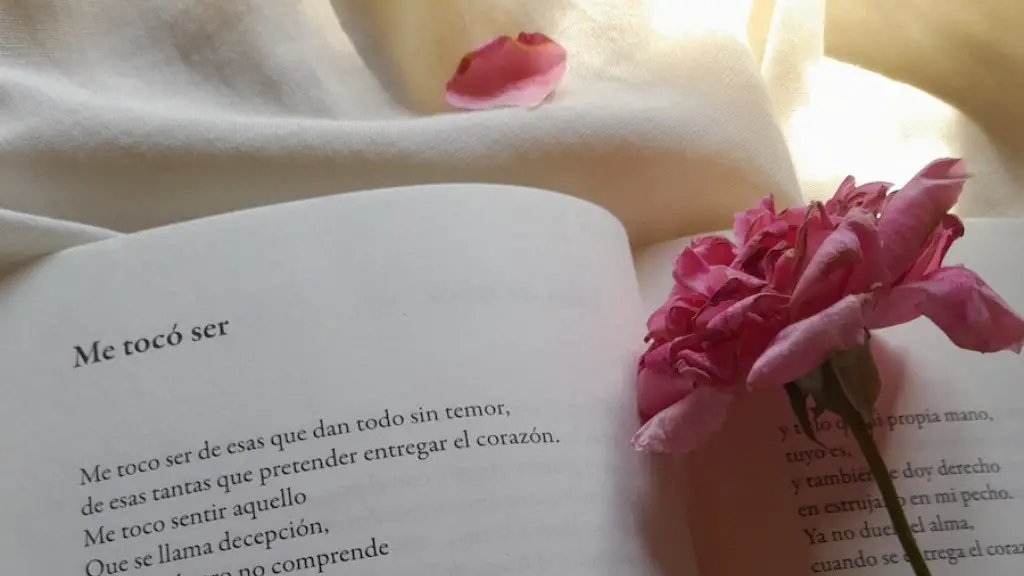Langston Hughes was a preeminent figure in the Harlem Renaissance. Although he wrote poetry and plays, he was far from the only Harlem Renaissance figure. Rather, he was just one voice among many in a movement that “describe[d] the African-American experience” in a prominent way for the first time (Harris, 2017). The Harlem Renaissance was a uniquely blossoming era of African-American culture, which had arisen in the aftermath of WWI: a time when former soldiers were returning home, often without jobs, without money, and without stability. This uncertainty led to a powerful cultural resurgence among the African-American people, who had been discriminated against severely over the preceding decades. And, while Langston Hughes wrote stirring poetry and was an important figure, his true legacy lies in the vision of African-American culture that was created during the Harlem Renaissance, and which continues to this day.
Hughes was born in 1902, a time when racial prejudice was rampant. He attended Columbia University, where he acted in off-Broadway plays, wrote poetry, and became a prominent figure on the New York literary scene. During this time, he developed a deep connection to his African-American heritage and began to explore the world of jazz music (Marquart, 2020). He embraced the emotion and the free-flowing spirit of the music, saying “jazz to me is one of America’s greatest original art forms” (Marquart, 2020). After experimenting with poetry, Hughes wrote his first collection of poems, The Weary Blues, which showcased his love of jazz and his passion for African-American culture. He would go on to write several more books, including Not Without Laughter and The Big Sea, which demonstrated his talent as an author and his dedication to celebrating the African-American experience.
One of the major contributions of Hughes to the Harlem Renaissance was his influence to bring together African-American poets and musicians. His genius for writing poetry in a jazz-inspired style had a big impact on the direction of African-American culture. His poetry was especially influential in the form of rhyme and syncopation, which he used to explore the African-American experience in ways that had never been expressed before. These poems, such as “Theme for English B,” spoke powerfully to young African-Americans and helped them to frame a self-identity in the face of adversity. Hughes was also influential in helping to organize a series of poetry readings, which brought together many of the most prominent authors of the Harlem Renaissance.
In his later years, Hughes’ influence extended beyond the literary realm, as he became an outspoken advocate for civil rights. Hughes used his public platform to advocate for black writers and African-American culture in general. He wrote books that told the stories of African-Americans, and wrote articles denouncing racism and supporting the civil rights movement. Ultimately, Hughes’ influence on the Harlem Renaissance and African-American culture is undeniable: through his activism, he elevated the political consciousness of African-Americans and raised the profile of their culture. And, while his works of poetry, plays, and novels are, of course, his most famous contributions, his support of the civil rights movement is perhaps even more important.
Langston Hughes’ Later Works
In later works, especially his collection of stories, The Ways of White Folk, Hughes began to address the underlying racism that had led to the development of the Harlem Renaissance. He wrote about the everyday lives of African-Americans living in big cities and the unjust treatment they faced. By painting an accurate picture of life for African-Americans, Hughes sought to give them a voice, a cause to rally around, and an understanding of the value of their culture. He also wrote of his own journey and experiences, while still promoting and acknowledging African-American culture through his words.
In addition to his works, Hughes was also a powerful inspirational speaker, addressing numerous groups of African-Americans and progressives. He used his platform to discuss the issue of black equality and to support the civil rights movement. He emphasized the need for African-Americans to believe in themselves and their own culture. Hughes’ speeches were not only inspiring, but also effective, as he spoke in a way that was highly personal and relatable to his audiences.
Hughes was also a crucial figure in the creation of Black History Month, which promotes the celebration of African-American history. Hughes played an instrumental role in ensuring that African-American history was remembered and that its accomplishments were highlighted. As a result of his efforts, today February is a month of celebration for African-American history and culture.
Although Hughes died in 1967, his legacy is still alive today. His works have been enshrined in the canon of American literature, and his activism has been acknowledged not only in the field of civil rights but also in the academic world. His poetic style has been embraced around the world and has inspired generations of writers. He will always be remembered as a powerful force in the Harlem Renaissance and as a crucial figure in the fight for racial equality.
The Lasting Impact of the Harlem Renaissance
The impact of the Harlem Renaissance can still be felt today. The influx of African-American literature, art, and music during this period changed the face of American culture and opened the door for modern African-American artists. African-American writers of the era, such as Langston Hughes, helped to shape the way African-American culture is portrayed and understood. And the works of African-American writers, musicians, and visual artists have had a lasting influence on the way African-American culture is embraced and appreciated.
In addition, the Harlem Renaissance was influential in other areas as well. By providing an outlet for African-American creativity, the Harlem Renaissance helped to foster an appreciation of African-American culture and history. This appreciation has also made its way into the mainstream and has helped to more fully integrate African-American culture into today’s society. Finally, the Harlem Renaissance was a major influence in the civil rights movement, inspiring African-Americans to fight for their rights and stand up for their causes.
Langston Hughes was an important figure in the Harlem Renaissance and is remembered for the contributions he made to African-American literature and culture. Hughes’ poetry, novels, plays, and activism helped to shape the way African-American literature is understood and appreciated. His writings and advocacy of African-American rights helped to integrate African-American culture into the American mainstream and inspired generations of African-American writers and civil rights activists. Hughes’ story is a testament to the lasting power of African-American culture, and his legacy will continue to live on for generations to come.
Influence on Contemporary Writing
The influence of Langston Hughes on modern literature can not be understated. His jazz-like poetic style has been embraced by many modern poets and his influence on the Harlem Renaissance era has been immortalized in the books and plays of contemporary writers. His influence can be seen in the works of writers like Toni Morrison, Octavia Butler, and Toni Cade Bambara. And, while they may write in different styles, they all look to Hughes as an inspiration and carry on his legacy as they write stories that speak to African-American culture and experience.
The influence of Langston Hughes extends to many other writers, as well, from Edward P. Jones to Jhumpa Lahiri. Hughes’s works have been studied and admired for generations, and he continues to be a major influence in African-American literature and culture. His works, his legacy, and his vision have all served as an inspiration for many modern authors and allowed them to explore and celebrate the African-American experience and shape their own identities as writers.
Influence of the Harlem Renaissance on Pop Culture
The impact of the Harlem Renaissance on popular culture has been far-reaching and profound. From music to film and television, African-American culture has had an influence on popular culture in the United States and throughout the world. For example, the influence of the Harlem Renaissance on jazz can be seen in the influence of musicians like Louis Armstrong and Miles Davis. The influence is also seen in films such as Spike Lee’s Do The Right Thing and John Singleton’s Boyz N The Hood. Similarly, the influence of African-American literature, particularly of Langston Hughes, can be seen in the work of authors like Maya Angelou and Toni Morrison, who have both cited Hughes as an influence.
The influence of the Harlem Renaissance on popular culture is especially evident in the visuals of music videos and films which have utilized the style of the Harlem Renaissance for visual inspiration. From Outkast’s “Hey Ya” to Jay-Z’s “Empire State of Mind” and films such as The Great Gatsby, the visuals from the Harlem Renaissance continue to feature prominently in popular culture today.
The Legacy of Langston Hughes
The influence of Langston Hughes on African-American culture and literature has been profound. His works, his advocacy, and his influence on the Harlem Renaissance have all been influential in shaping the way African-American culture is understood and celebrated. His poetry has been studied, admired, and passed down through generations, and his influence on modern African-American literature can still be seen today. The legacy of Langston Hughes will live on for many years to come and continue to inspire African-American writers and lovers of literature alike.




